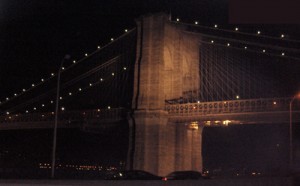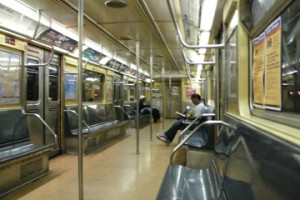For the small businesses that are based in Lower Manhattan in the vicinity of the World Trade Center site, and for the families that also live there, there is no end in sight. The ongoing reconstruction of the site, the round-the-clock noise and disruptions and concerns about environmental hazards (coupled with an extraordinary process for the demolition of 130 Liberty Street, the office building opposite the WTC) should have ended years ago. The endless and inexplicable delays prolong emotional trauma that should be healed and needlessly disrupt lives. It is an abuse of the residents and small businesses and an abuse of the American taxpayers who are underwriting this farce. Today there was another unwelcome but not, given the history, unexpected, development.
The Associated Press cites anonymous sources within the Port Authority of New York and New Jersey, the government agency which owns the World Trade Center site, that construction of two of the three towers planned for the site may be delayed for more decades, possibly until the year 2030. The delay is attributed, in part, to conditions in the real estate market. Of course, these market conditions would not be pertinent had the reconstruction proceeded in a more efficient manner: the site would should have been redeveloped years before the collapse of the credit markets at the end of 2008.
The other sad irony, that was not cited in the AP report, is that the various subsidies offered to real estate developers, such as Liberty Bonds on a tax-advantaged basis, probably undermined market forces in a way from which Lower Manhattan is unlikely to recover. The various corporate welfare programs incented developers to flip from commercial to residential properties. I am not a big believer in “if you build it, they will come”. Rather, I would see an entrepreneurial opportunity in response to market demand. If you think that there is a demand to live in the financial district, go there and try to buy a newspaper on the weekend or find a decent restaurant that is open late at night. In any event, the developers responded in a rational way by taking the incentives. Many small businesses, such as my own, that were successful were displaced to make way for these grand scheme projects, that now sit vacant.
Large downtown employers in the financial district (such as Lehman Brothers and Merrill Lynch) no longer exist and others (AIG) are in trouble. With fewer jobs available in the financial district, and no other reason to live there unless you are an investment banker who works 100 hours a week in that neighborhood, there is little demand to buy apartments. There is such too much uncertainty about employment in that community and mortgage financing is harder to access. I made the decision to move out of our Wall Street office with very little enthusiasm. I miss that community. But now I am glad I did. The photograph, by the way, is one I took of a more enduring symbol of New York. I snapped a picture of the Brooklyn Bridge illuminated at night from my seat in a taxi cab as we were driving down the FDR. I find it to be a more optimistic picture than that of Wall Street now, with its chain retailers, it has lost its character.

